Eating seasonally
Nature has a remarkable way of providing us with what we need, just when we need it. Around the world, fruits and vegetables come into season at particular times of the year and early humans would have foraged what was available in spring, summer, autumn, and winter. As the seasons changed, so too did our diets.
However, over the last few decades, due to globalisation, international trade, and mass production, we have been spoiled by the convenience of foods being available all year round. But in an age where people are looking to be more sustainable and health-conscious, seasonal eating comes with a multitude of benefits, both for you and the environment.
For years, the world’s best chefs have been designing their menus around fresh seasonal produce. And now, households are starting to follow suit. But what does it really mean to eat seasonally? Why is seasonal eating right for you? And how do you do it?
We’ll walk you through it while also offering our top tips for the best ways to store seasonal vegetables and fruits in your home kitchen appliances.
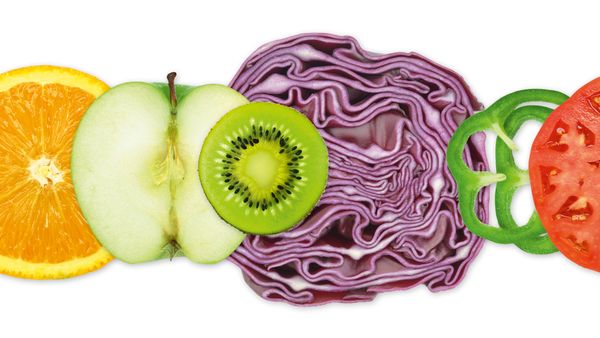
What does eating seasonally mean?
Seasonal eating means consuming only the product that has been grown and harvested at the time. In other words, just the fruits, vegetables, grains, pulses, and other produce that is in season in your country.
Rather than having fresh strawberries in January or imported avocados from Argentina, we could be blackberry picking each autumn, or buying homegrown vegetables and fruit from our nearest farmers market. The list of benefits is enormous; it’s better for our health and our household budget, the regional economy, and the natural environment.
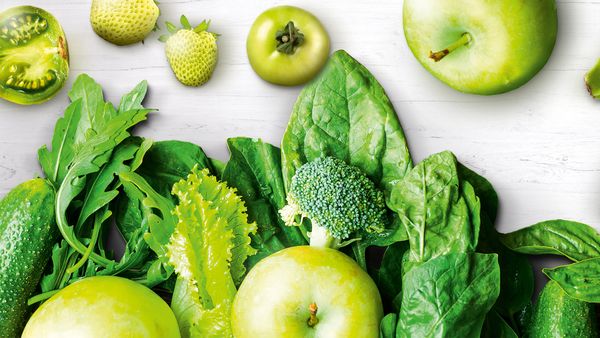
Why eat seasonal?
Health benefits
Perhaps the most compelling reason to eat seasonally is for health benefits. As we said above, nature has a way of providing what we need, and foods in season happen to contain the vitamins, minerals, and nutrients our bodies require at certain times of the year.
For example, did you know that apples, berries, and butternut squash all come into season in the UK as summer turns to autumn? This is when we need extra vitamin C to fight off winter colds and other viruses! Similarly, stone fruits like peaches and nectarines give us just what we need in the summer. That means beta-carotene and carotenoids to protect from the sun’s UV rays. Thanks, Mother Nature!
That’s not the only health benefit either. From a nutritional perspective, eating seasonally also prevents us from eating the same thing all year round, which isn’t good for us. Variety is the spice of life! There’s also a lot of evidence to demonstrate that fruit and vegetables are fresher and tastier in their peak season than mass-produced alternatives.

It’s better for the environment
Eating seasonally also helps reduce the energy and CO2 emissions needed to transport food from elsewhere in the world. These include vast amounts of fuel, refrigeration, and storage required, chemicals, gases, ripening agents, artificial hothouses, and more. None of which sounds too healthy for us or the environment. Seasonal eating is much kinder on the planet.
Save money and support your local businesses
By eating ‘field to fork’ as it’s known, you’ll also be helping the local economy, including farmers and small businesses such as local greengrocers. You might be surprised to find out that seasonal eating is also much cheaper for you. When fruit and vegetables are in season, it means they’re in abundance, which brings the market price down. They’re also less expensive by saving on transport and storage costs from overseas.
In summary, eating seasonal is excellent because it’s:
• Healthier (more tips on staying healthy here)
• Better for the environment and reduces your carbon footprint (live more sustainably with Bosch, learn more)
• Cheaper
• Helpful for the local economy and your community
What food are in season now in the UK?
Every country has its own seasonal foods. The UK is no different. And while each region has its own specialities, the country as a whole has a relatively stable list of seasonal produce available each spring, summer, autumn and winter. Below is our seasonal food calendar for the UK:
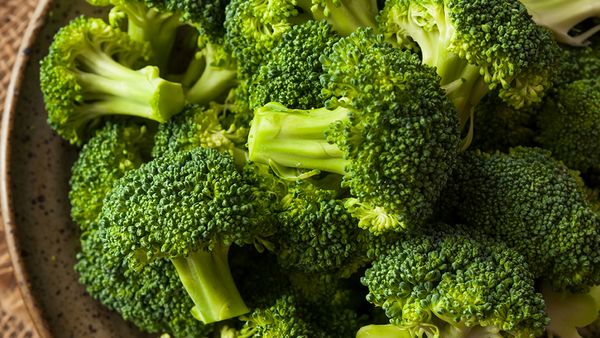
Spring seasonal foods
Asparagus, Broccoli, Carrots, Cauliflowers, Celeriac, Cucumbers, Curly Kale, Gooseberries, Purple Sprouting Broccoli, Radishes, Rhubarb, Savoy Cabbage, Sorrel, Spinach, Spring Greens, Spring Onion, Wild Nettles.
Summer seasonal foods
Beetroot, Blueberries, Broad Beans, Carrots, Cauliflowers, Courgettes, Cucumber, Currants, Elderflower berries, Fennel, Figs, Fresh Peas, Garlic, Green Beans, Lettuce, New potatoes, Radishes, Raspberries, Runner Beans, Peas, Plums, Sage, Salad Leaves, Salad Onions, Squash, Strawberries, Tomatoes.
Have a go at this Summer Fruits Tart recipe.
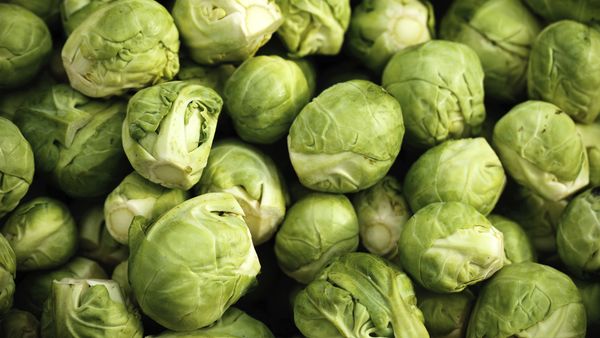
Autumn seasonal foods
Apples, Blackberries, Elderberries, Field Mushrooms, Lettuce, Marrow, Pears, Plums, Potatoes, Pumpkin, Rocket, Sloe berries, Squash, Sweetcorn.
Winter seasonal foods
Apples, Bay Leaves, Brussels Sprouts, Cabbage, Carrots, Cauliflower, Celeriac, Curly Kale, Fennel, Leeks, Parsnips, Pears, Potatoes, Quince, Red Cabbage, Swede, Turnips.
Try this winter Christmas mincemeat tart recipe.

Seasonal meat, poultry, and fish in the UK
While this list predominantly covers UK seasonal vegetables and fruit, meats and fish are also seasonal. Look out for lamb and sea bass in the spring in the UK, meat and wild salmon in the summer, grouse, venison, and oysters, in the autumn, and turkey, partridge, and mussels in winter.
Seasonal food facts
Did you know? Watercress is available almost all year round in the UK and can be found in Spring, Summer, and Autumn.
Herbs can also generally be grown throughout the year in the UK, both outdoors and at home on your windowsill, but May to August are particularly good months for British producers with the following herbs in abundance across the UK: basil, chervil, chives, coriander, dill, elderflowers, oregano, mint, nasturtium, parsley (curly), parsley (flat-leafed), rosemary, sage, sorrel, tarragon, and thyme, among others.
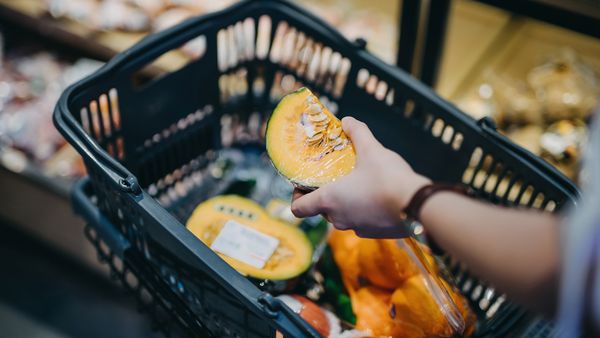
Remember to eat local too
As we mentioned, chefs have been leading the way in the use of fresh seasonal fruits and vegetables for years now, and the same goes for local produce. It’s not just about supporting local farmers and businesses either. It’s about the sustainability, traceability, and quality of the crop – and if it’s good enough for Michelin-starred restaurants, it’s good enough for our kitchens.
Just as we eat with the seasons, we can also do our part to support local producers by buying from farmers markets, greengrocers, and other independent businesses. This gives our small businesses the chance to compete with big supermarkets and ensures that fresh, seasonal, local produce stays on our tables.
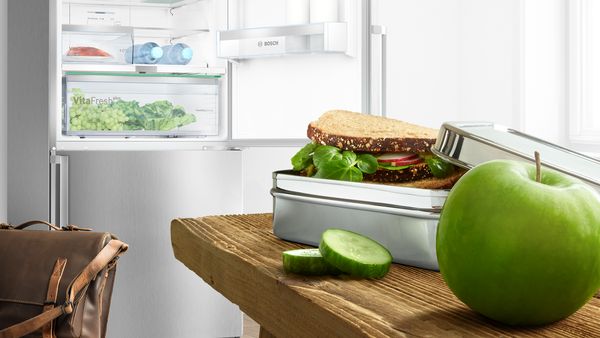
Everything in moderation
Seasonal eating is great, but that doesn’t mean you can never indulge in a fruit or vegetable from overseas, or out of season. After all, the key to a healthy, balanced diet is everything in moderation. Just be sure to store your fruit and vegetables correctly so you can enjoy them at their best.
Leading kitchen appliances like Bosch fridges offer humidity controls for each compartment to ensure salad remains crisp and strawberries stay sweet. If you’ve gone to the trouble of buying local, seasonal produce, you deserve to eat something delicious!


